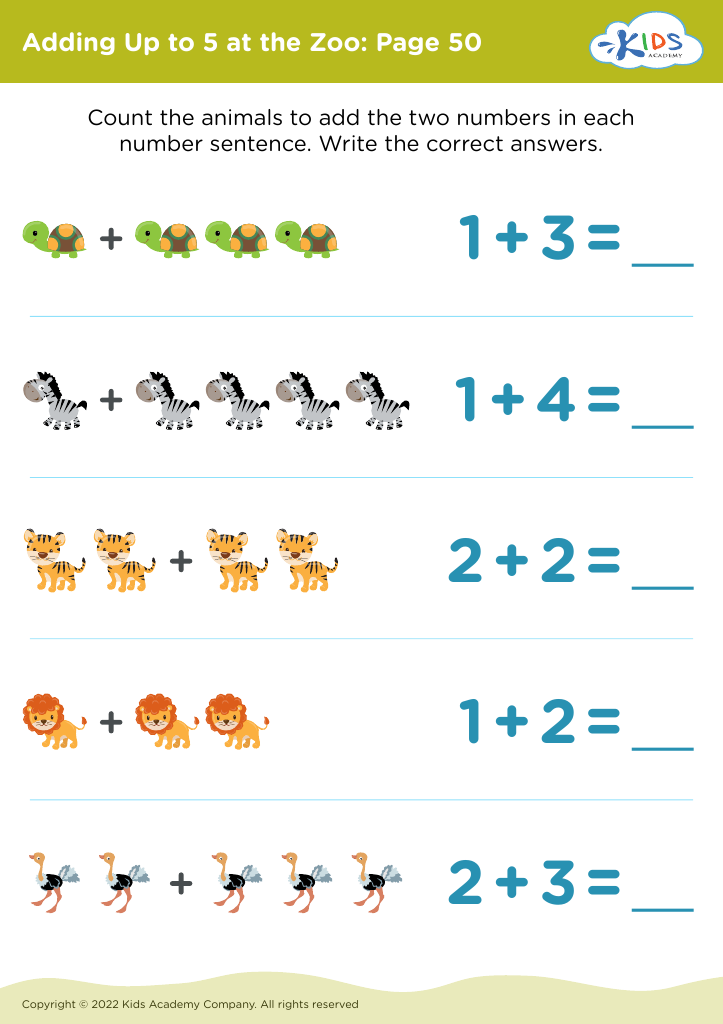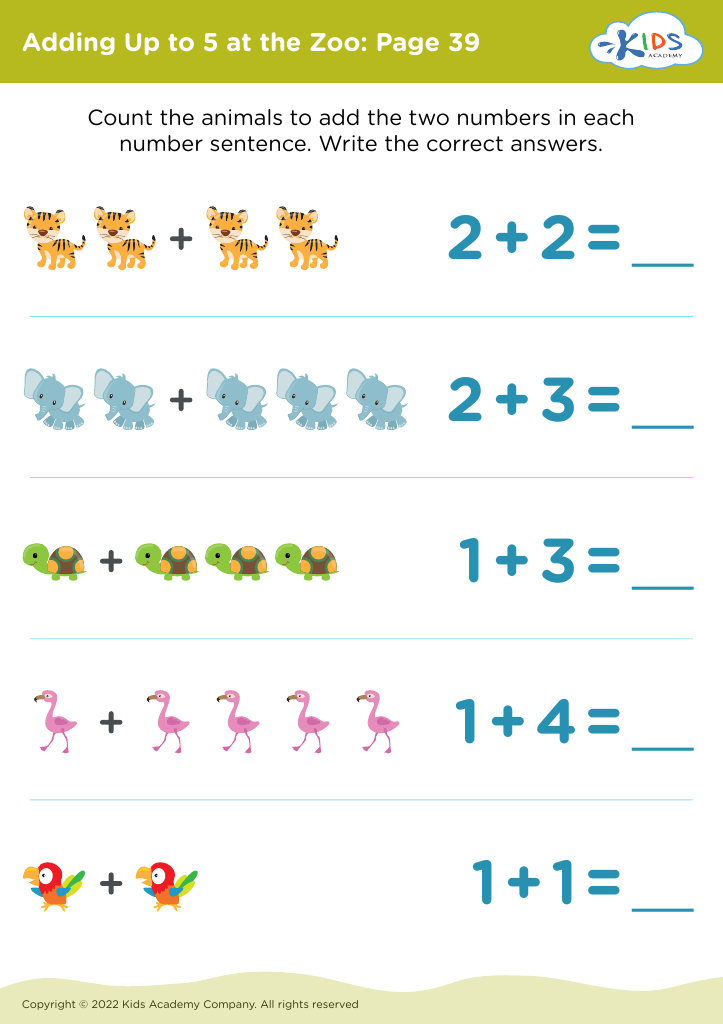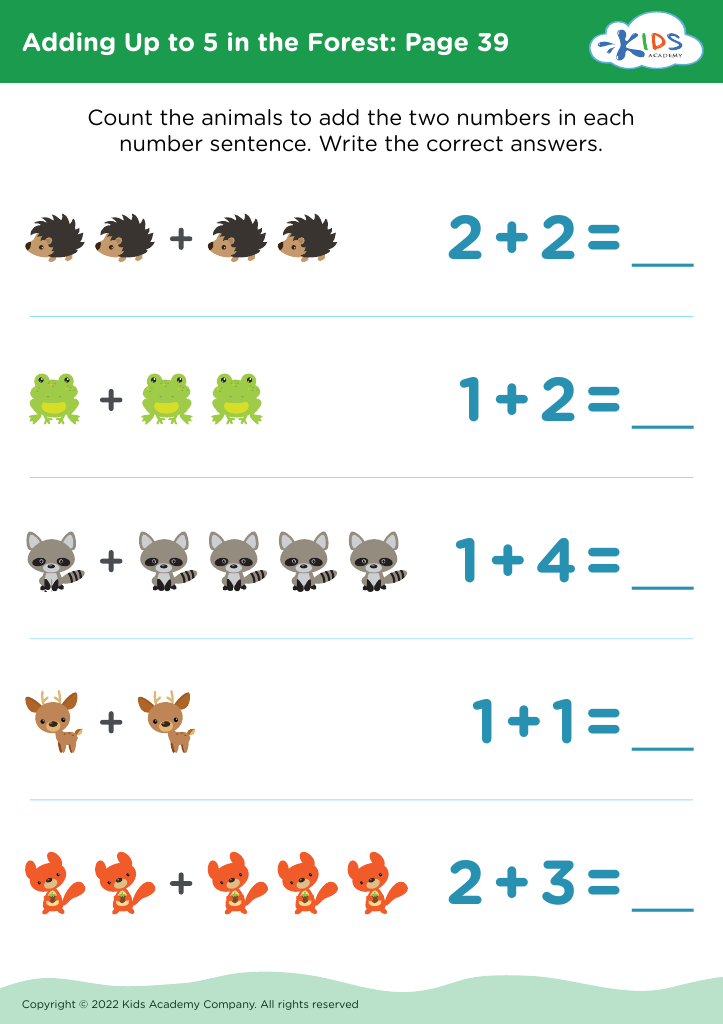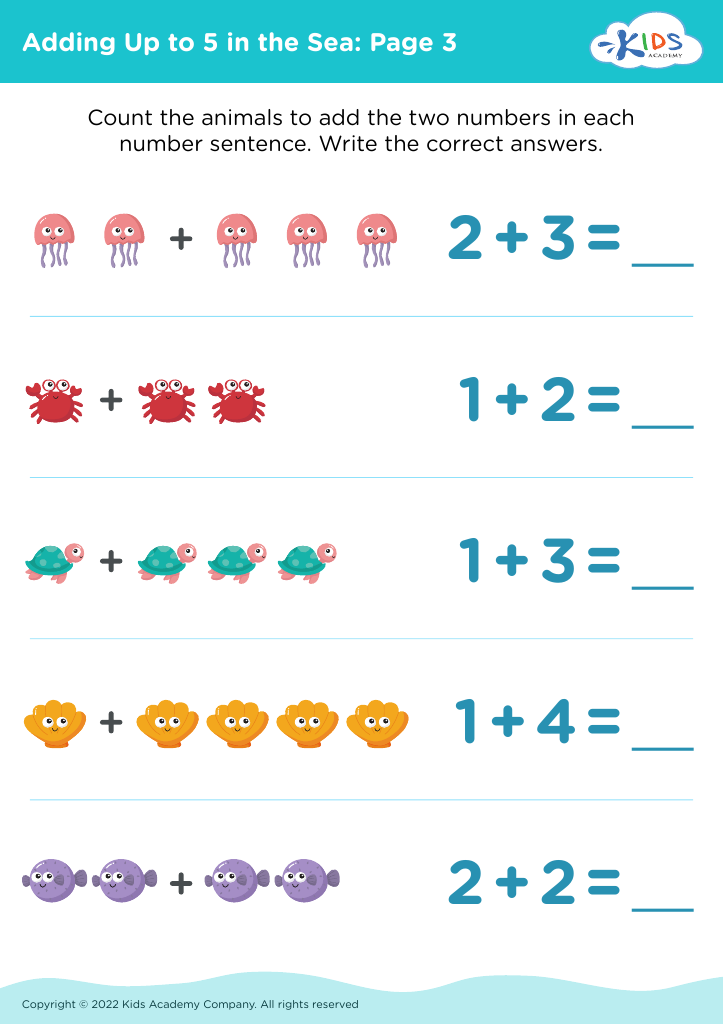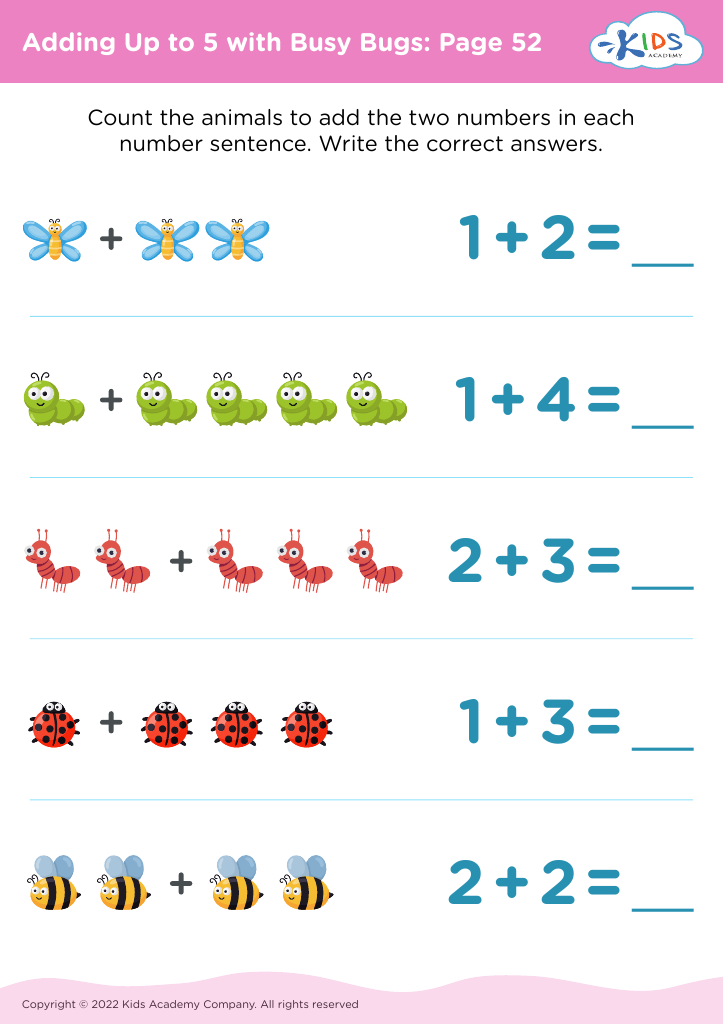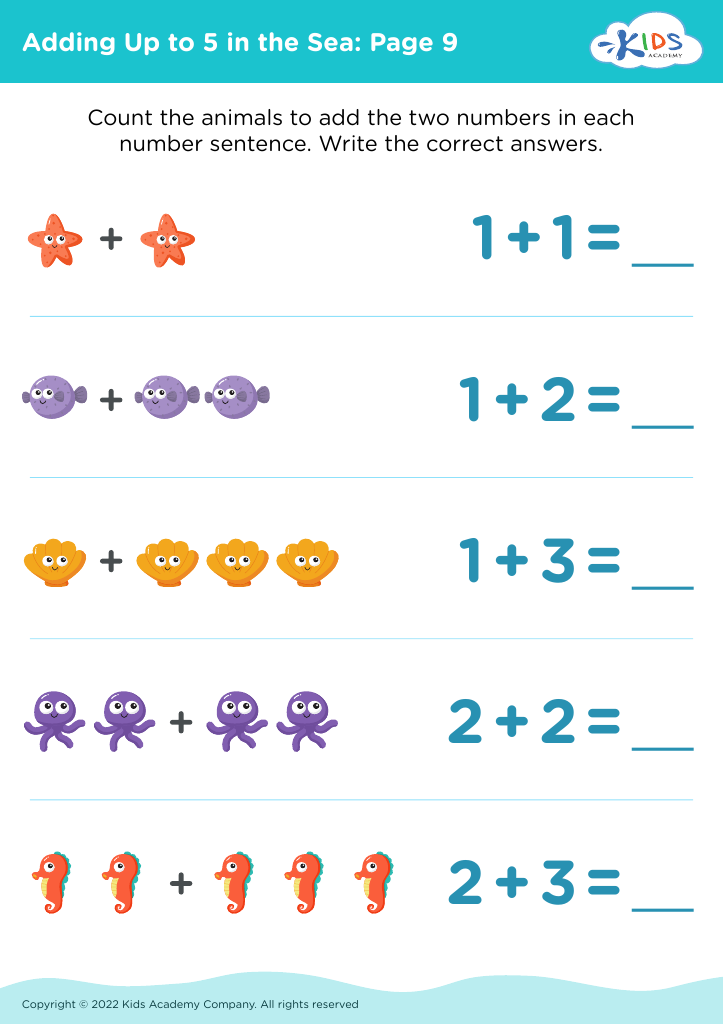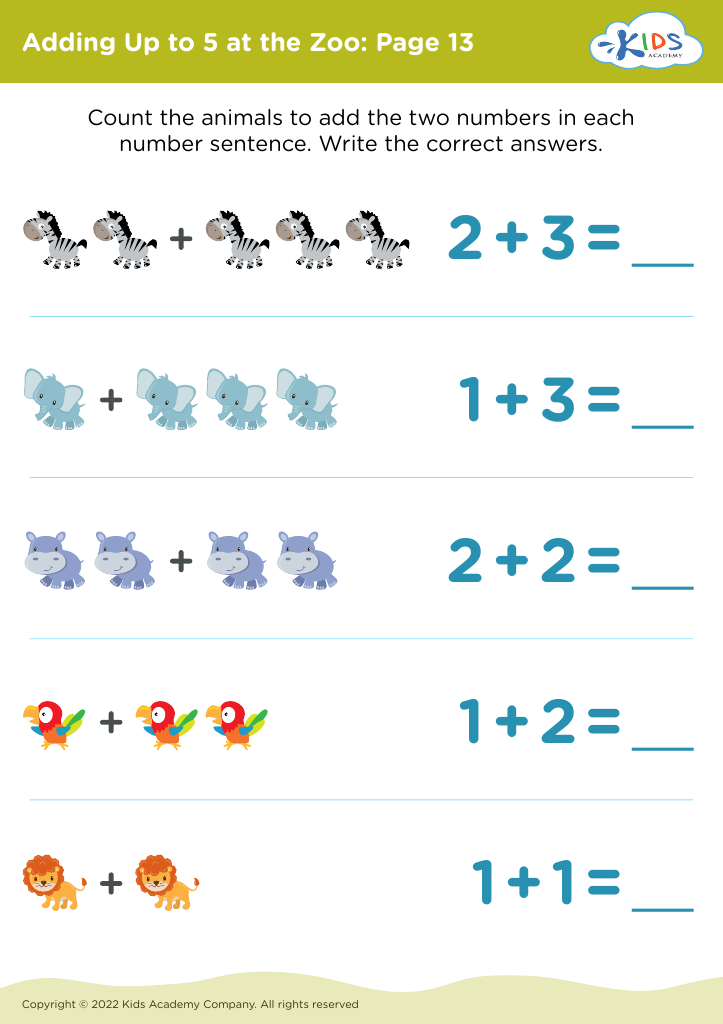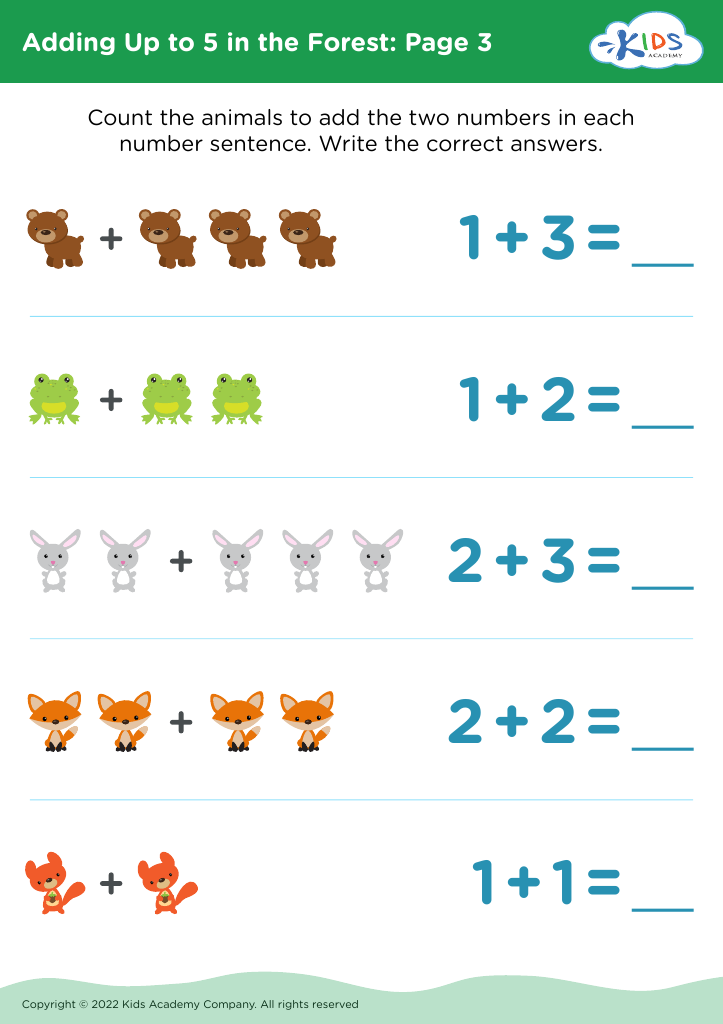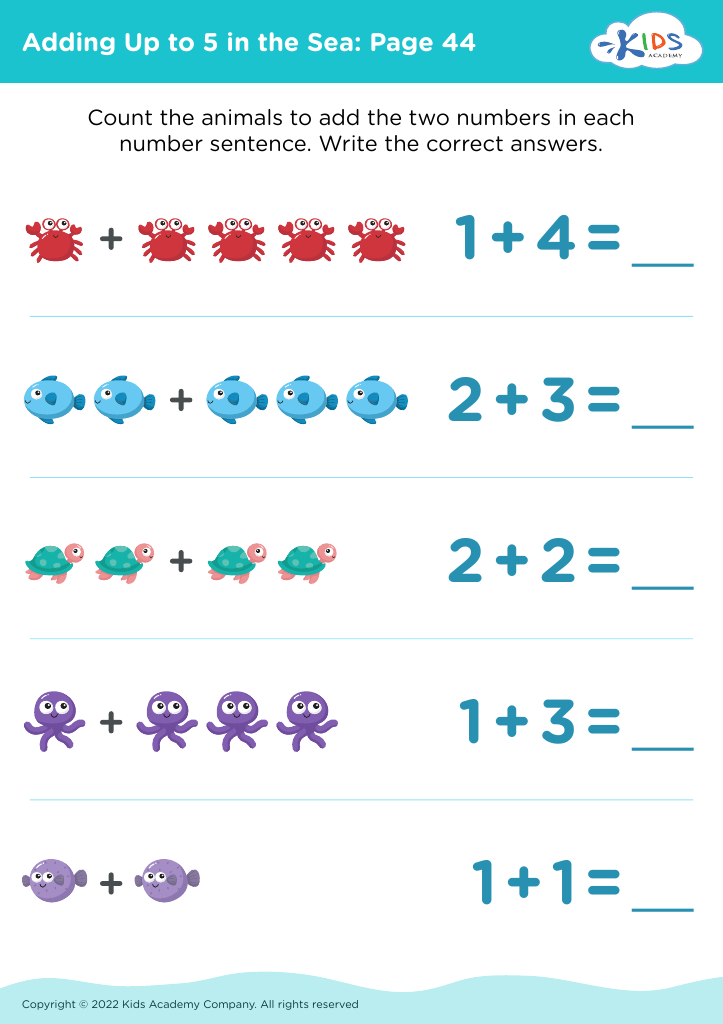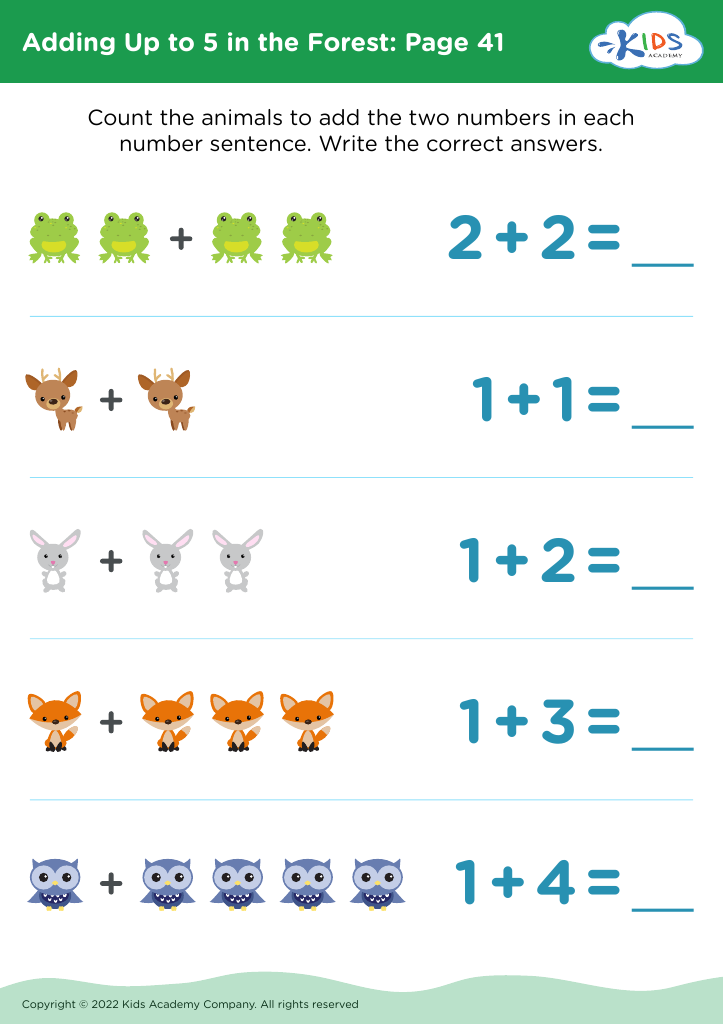Counting practice Math Worksheets for Ages 3-8 - Page 15
359 filtered results
-
From - To
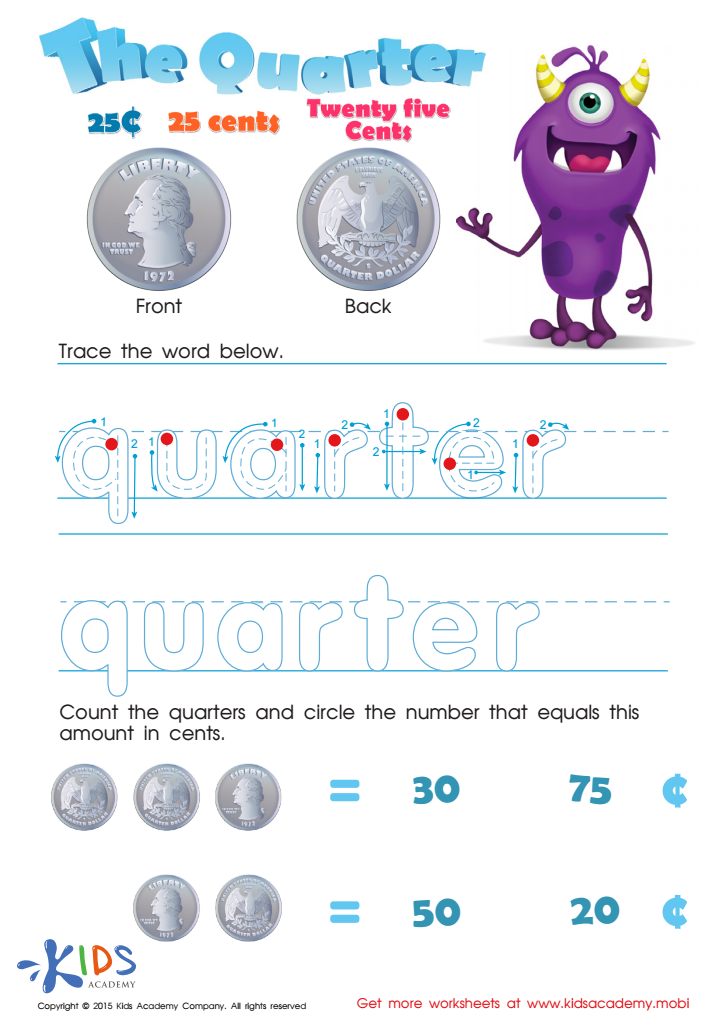

Twenty Five Cents or the Quarter Money Worksheet
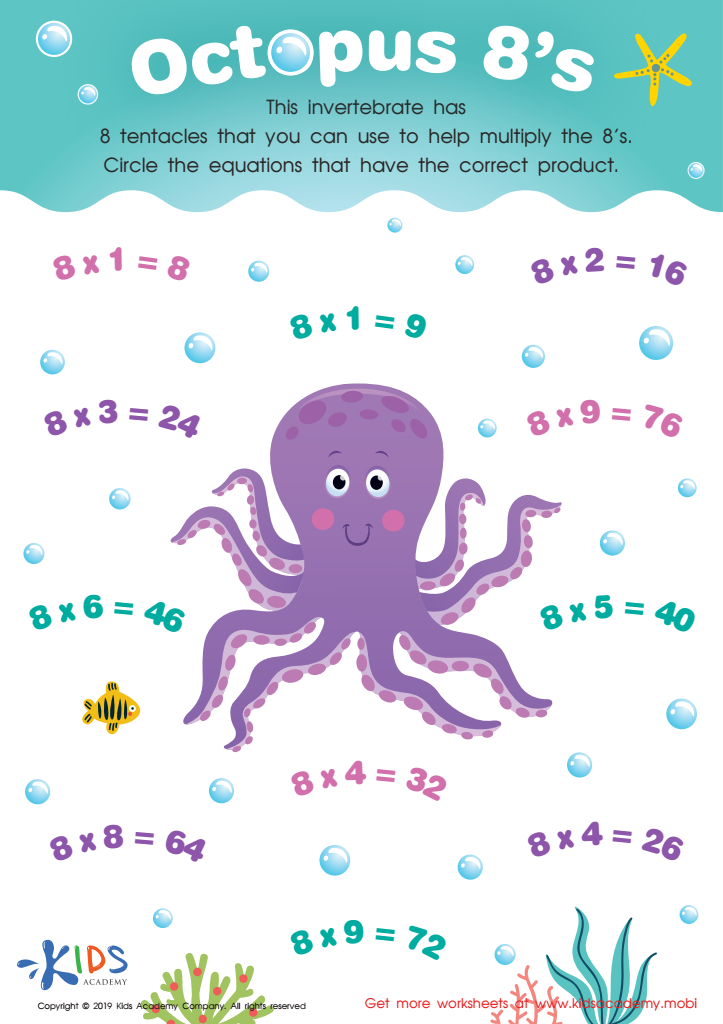

Octopus 8’s Worksheet
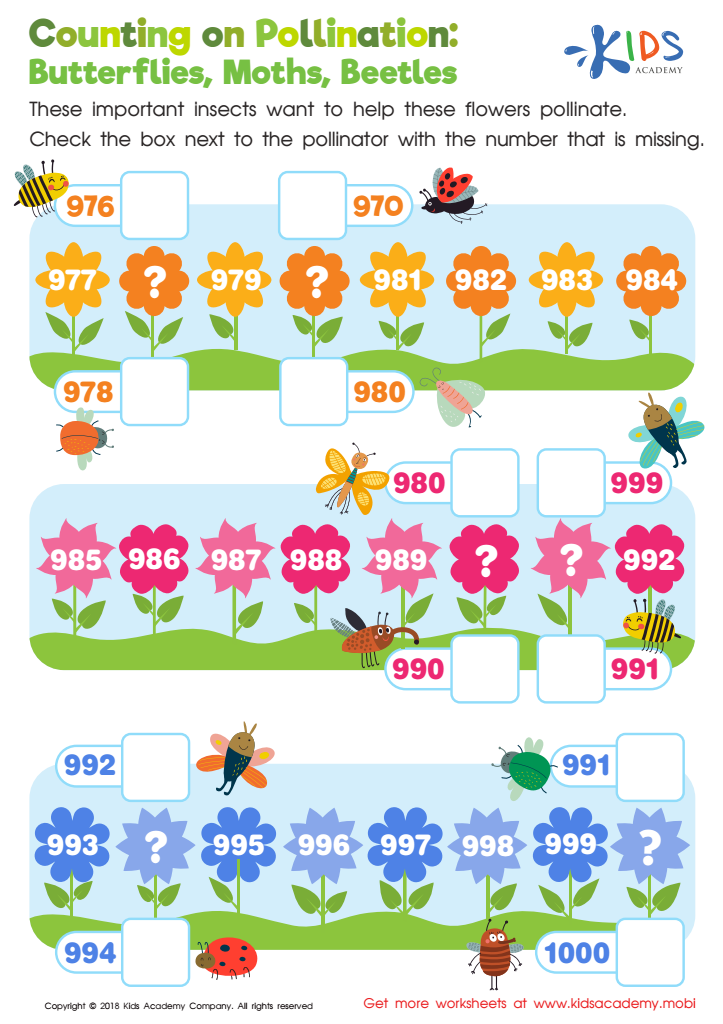

Counting on Pollination: Butterflies, Moths, Beetles Worksheet
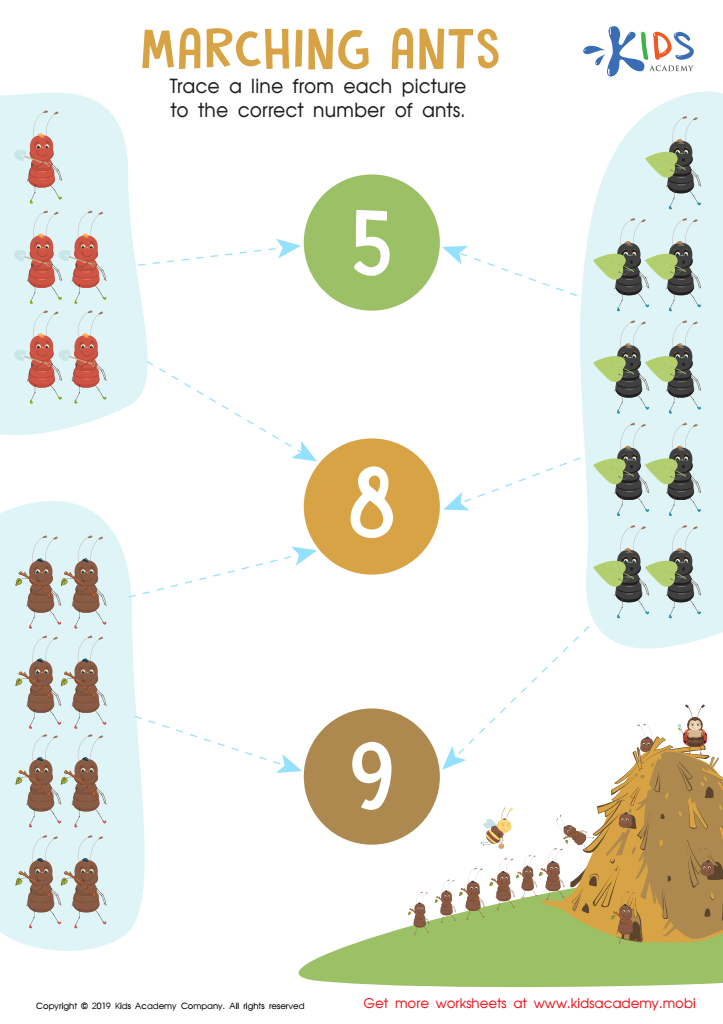

Marching Ants Worksheet
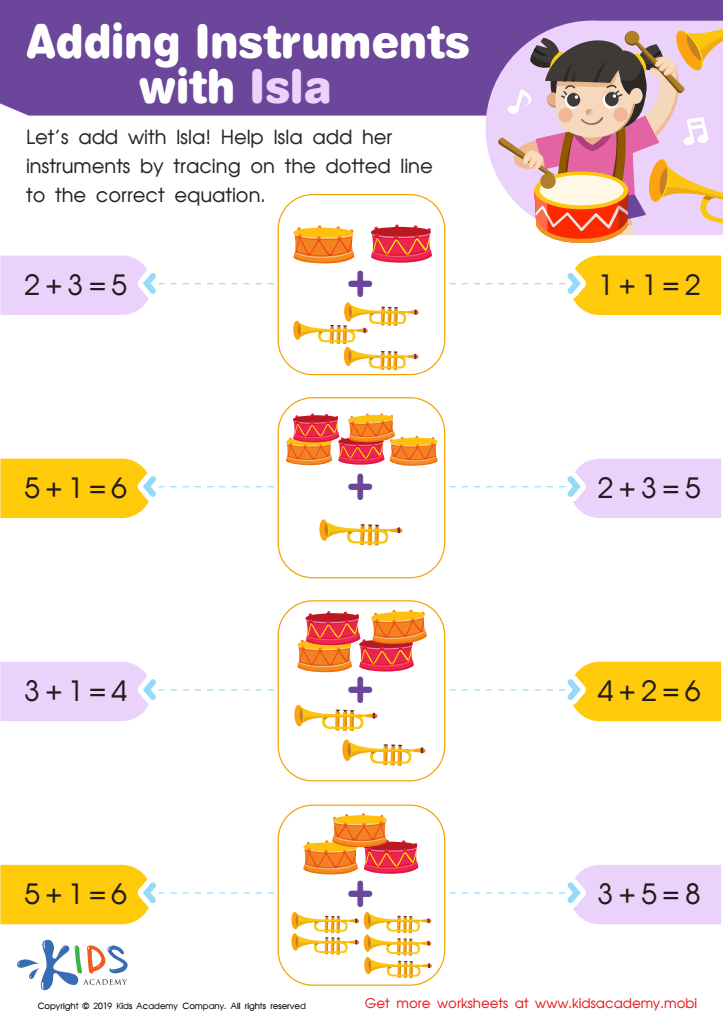

Adding Instruments with Isla Worksheet


Counting on the City Skyline: Dot-to-Dot Worksheet
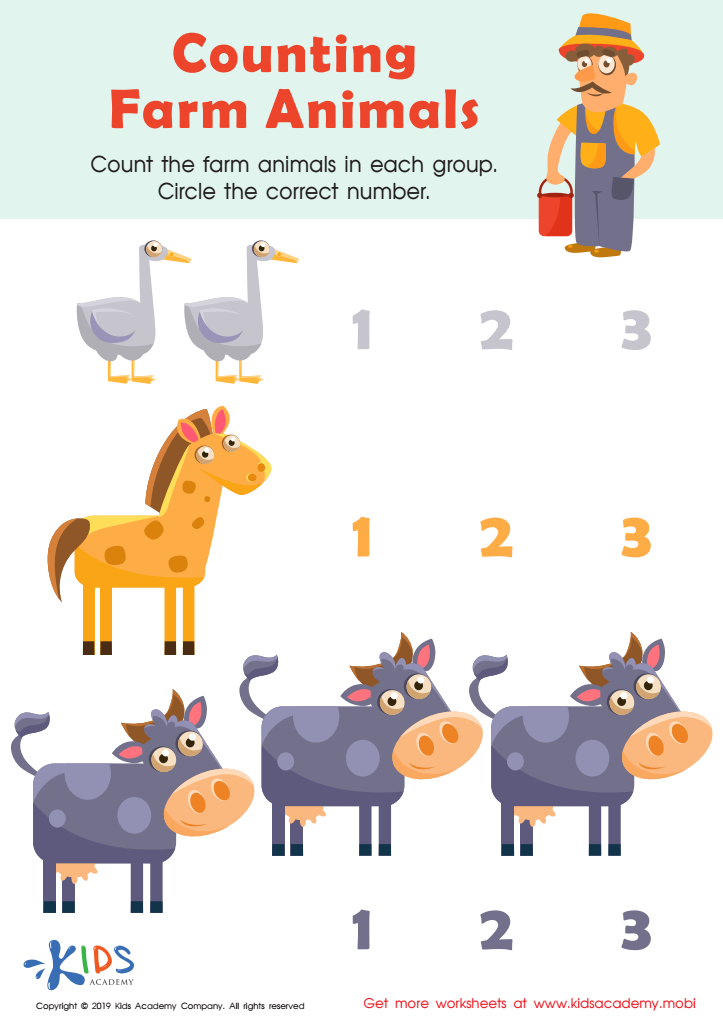

Counting Farm Animals Worksheet
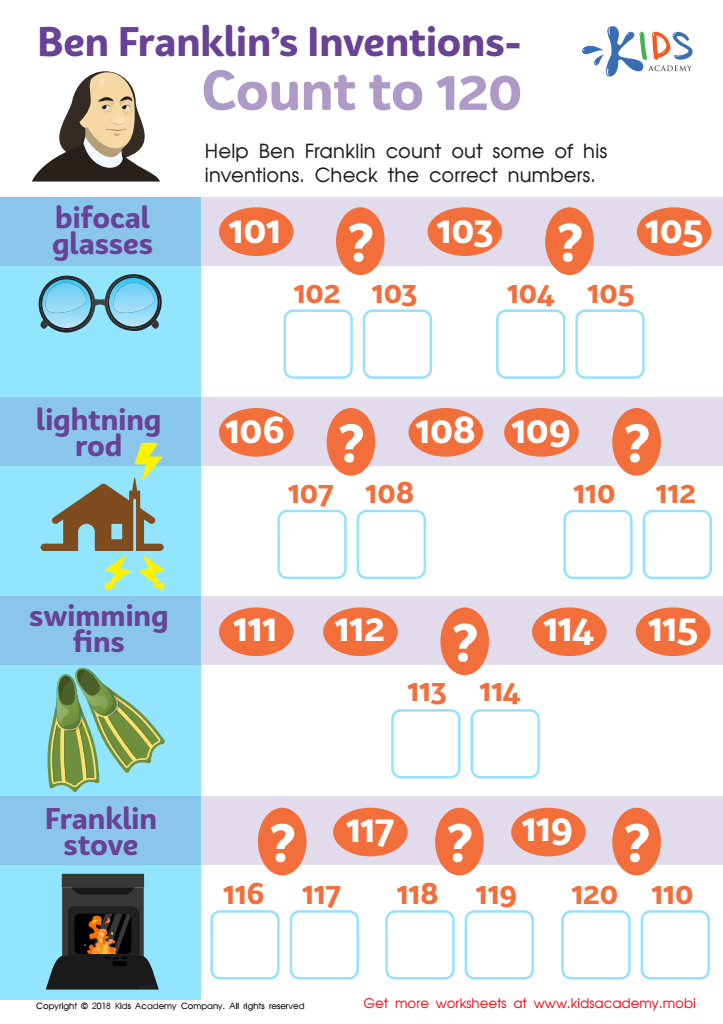

Ben Franklin’s Inventions – Count to 120 Worksheet
Counting practice is crucial for children aged 3-8 as it lays the foundation for their mathematical understanding and overall cognitive development. At this age, children are highly receptive to learning through play and exploration. Engaging in counting activities helps to enhance their number recognition, improve their ability to sequence, and develop a strong number sense. This early exposure to math concepts fosters critical thinking, problem-solving, and analytical skills that are essential for future learning.
Parents and teachers should care about counting practice because it directly influences a child's confidence in mathematics. Children who develop strong counting skills are more likely to succeed in more advanced math topics later on. Additionally, counting practice encourages fine motor skills when using objects for counting, enhances social interaction through collaborative learning activities, and can enrich vocabulary as they learn to describe quantity and numbers.
Moreover, incorporating counting into everyday routines, such as during meals, playtime, or shopping, makes learning relevant and fun. This builds a positive attitude towards math from an early age. By prioritizing counting practice, parents and teachers play a vital role in equipping children with foundational skills that will benefit them academically and personally throughout their lives.
 Assign to My Students
Assign to My Students


